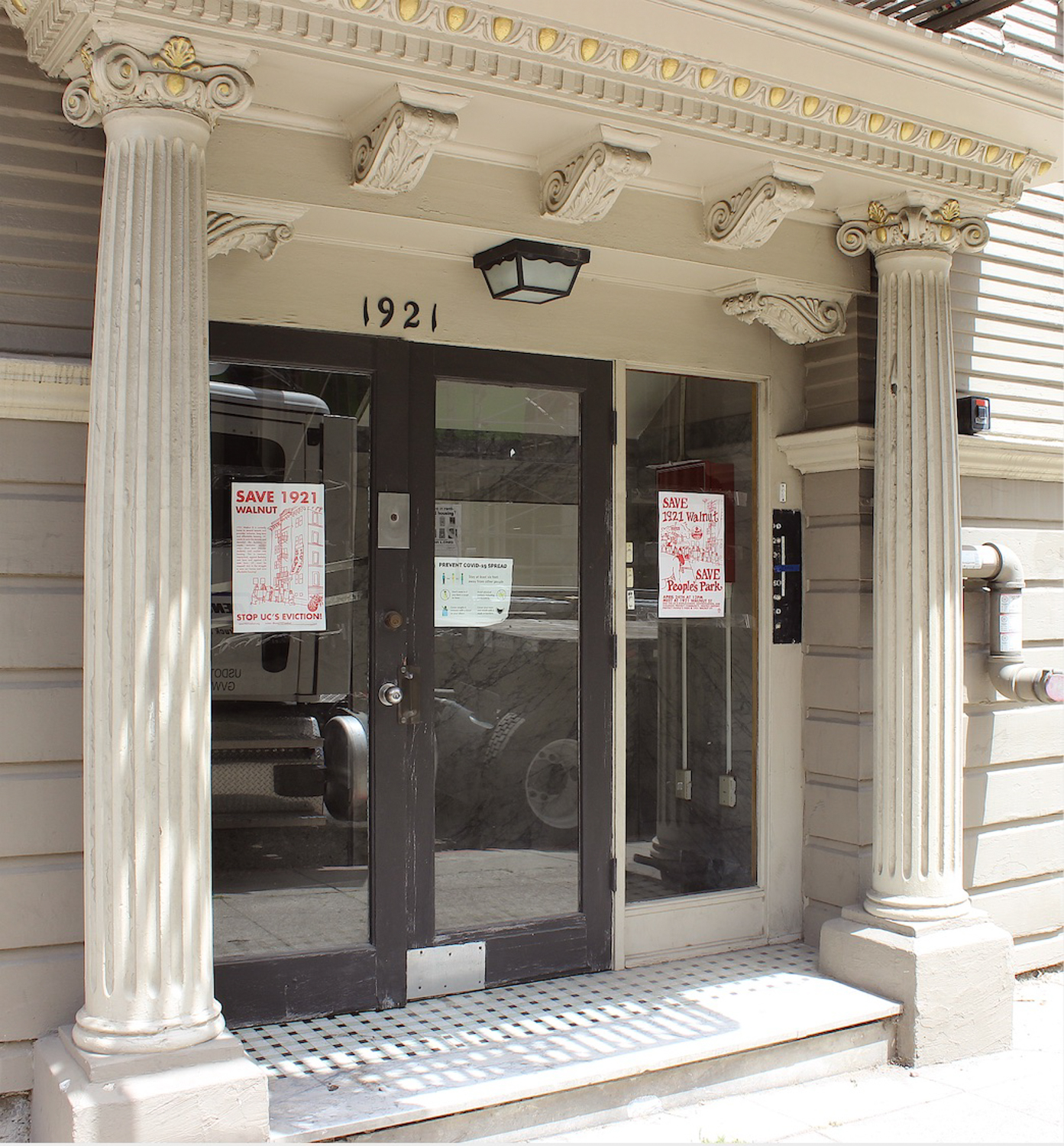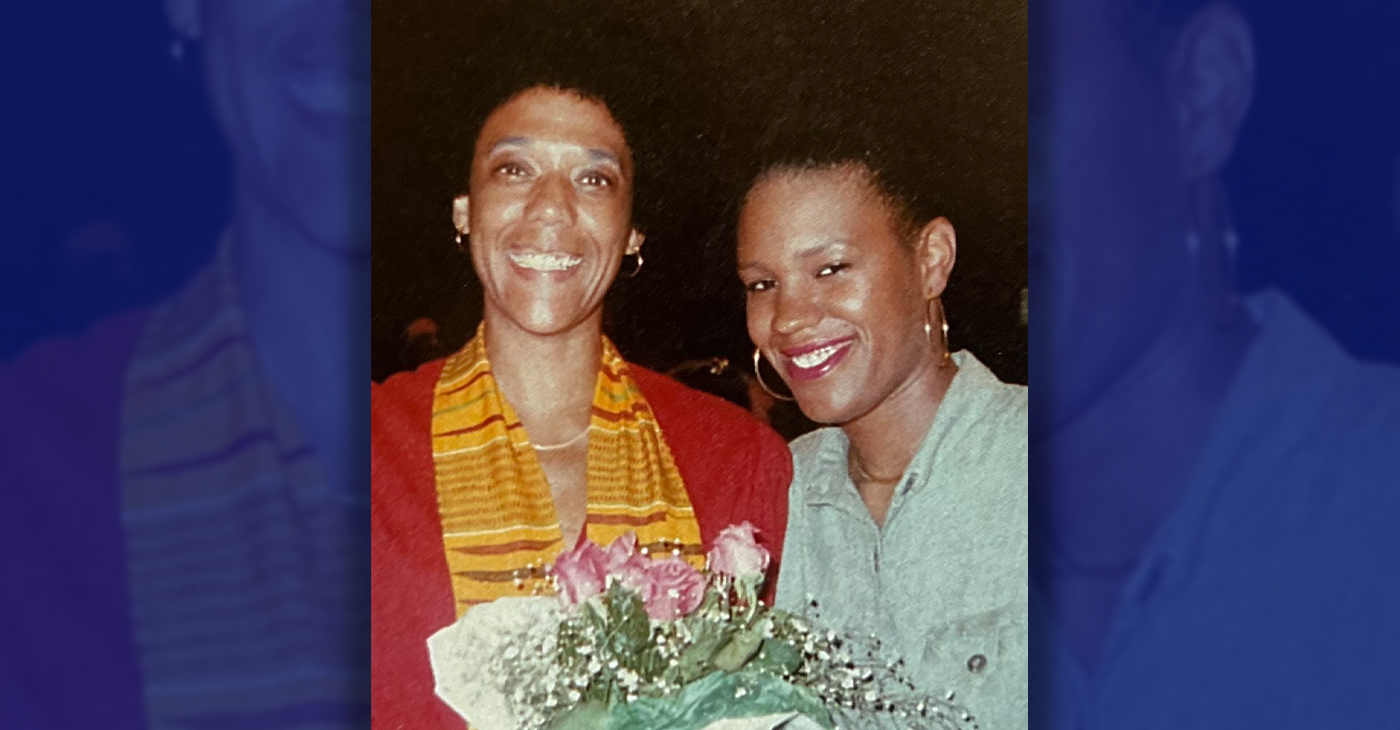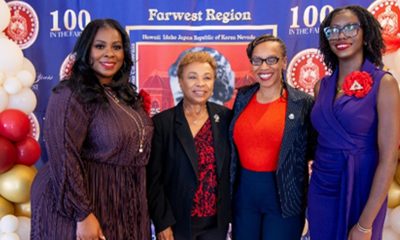Tenant Natalie Logusch is suing the UC Board of Regents to demand they release public records she requested about a year ago related to UC Berkeley’s demolition and development plans that could displace her and her neighbors from their apartments at 1921 Walnut St.
“The public has to know the truth about what the plans are,” said Logusch. “The UC thinks they can push this through by withholding information.”
According to Kyle Gibson, Communications Director for UC Berkeley Capital Strategies, Logusch could receive the records soon.
“The university is discussing a settlement of the lawsuit with Ms. Logusch’s counsel that includes production of documents,” he said. “We hope this matter will be quickly resolved.”
For Logusch, suing to get the UC Regents to release their records is part of the broader effort to save her and her neighbors’ homes. Paul Wallace, another Walnut Street tenant, said that by not releasing the records, UC is “keeping us [tenants] in the dark.” According to Wallace, he and his neighbors have requested meetings with the university about the development that could displace them, both on their own and through Berkeley’s student union, the ASUC, but the university has always refused.
In a letter sent in August last year to Logusch, Wallace, and other 1921 Walnut Street tenants, UC Berkeley Real Estate Director Michelle De Guzman wrote, “The University will not be holding in-person or virtual conversations regarding the property for the foreseeable future.” At a meeting with the UC Regents during May of this year, UC Berkeley Chancellor Carol Christ claimed the university has initiated “hundreds of hours of community engagement” related to the Long Range Development Plan, which includes Walnut Street’s redevelopment. According to Wallace, however, the university has never met with him and other tenants in his building, and the only avenue he has had for the Regents to hear his concerns has been to call into their meetings and make public comments that are limited to one minute.
“You want to appeal to keep your home, but you only have a minute to do it,” he said. “It’s ludicrous.”
Logusch and Wallace are two of seven tenants, including one child, who currently live in the 112-year-old apartment building on 1921 Walnut St, next to UC Berkeley’s campus. These tenants have lived there from between six and over 25 years. In April last year, the university delivered a letter to the Walnut Street tenants telling them the Regents planned to demolish and redevelop the property they live in. While the letter stated there was “no imminent action planned,” it stressed tenants, who would be offered a relocation plan, could be forced to leave after being given 90 days’ notice.
In July 2020, the UC Regents purchased the Walnut Street building from its previous owner, Waterbury Properties. Since the housing units were covered under rent control, City of Berkeley law had limited the amount that Waterbury Properties could raise the rent on the building per year. But the tenants may have lost these protections when UC Berkeley purchased the property.
“UC Berkeley is exempt from any local zoning and housing ordinances,” said John Selawsky, a Berkeley Rent Board Commissioner. “In terms of state and local law that makes them a sovereign entity.”
Due to local and state laws that cover the City of Berkeley, if a private developer demolished and then rebuilt housing on the same property, as UC Berkeley plans to do, they would have to relocate tenants and then provide them with a right to return. If they demolished rent controlled units, they would have to rebuild the same number of units at a lower-than-market-rate rental price. But these laws do not apply to UC Berkeley.
“These current tenants could lose housing,” said Selawsky. “But Berkeley could also lose a rent controlled building forever. There’s no provision for replacement that UC has offered. And that galls me.”
According to UC Berkeley, the plan is to demolish the building as part of a broader plan for the area to build student housing for transfer students. The project is called Anchor House. The university claims Anchor House will allow 244 apartments with 772 individual bedrooms to be built, funded by donations from a private donor. Gibson claims that demolishing the Walnut Street building will allow 75 students to be housed and that revenues the project generates “will go toward providing annual scholarships for students from underrepresented populations and first generation college students.”
The current Walnut Street tenants disagree with UC. Their website describes the project as “high-end student housing with luxury amenities.” They discovered through a public records request that Jaclyn Safier heads the foundation that is financing the project, and have questioned her intentions after learning she is a billionaire who made at least 13 donations to the Republican Party and National Committee in 2016. They note that the Anchor House plan includes 17,000-square-feet of commercial retail space that can be leased to non-UC vendors and amenities such as a dorm lounge and a teaching kitchen with a scullery. They think there could be enough space for student housing and for their apartments to remain if the plan did not include such additional spaces and amenities.
The Walnut Street tenants feel they have wide support for preserving their rent controlled apartments. The Berkeley Architectural Association recently released a 161-page report agreeing that the existing apartments could be saved if the university reduced some amenities and removed the commercial spaces from the Anchor House plan. A section of the tenants’ website lists supporters including The Sierra Club, UC Berkeley staff and students, and Bay Area Tenants and Neighborhood Councils. Berkeley’s Rent Stabilization Board sent a letter on June 8 last year calling for the building to be preserved, and Berkeley’s City Council unanimously passed a resolution called “Support the Preservation of 1921 Walnut Street” on July 28 of the same year.
On March 18 this year, Berkeley Mayor Jesse Arreguín spoke at a rally in support of the Walnut Street tenants, saying “We need more student housing, but it cannot happen by eliminating existing affordable housing.”
UC Berkeley has its own supporters. The website for Anchor House shows a letters of support from the Downtown Berkeley association, San Francisco Housing Action Coalition, and the Berkeley Chamber of Commerce. They also list support statements from four transfer students. Alice Waters, the founder of Chez Panisse restaurant and a 1967 UC Berkeley graduate, is quoted praising the Anchor House plans, and specifically the kitchens and gardens it could accommodate.
Spokespeople for UC Berkeley and Chancellor Christ have also repeatedly described the relocation package they are offering tenants as “generous.” The Regents are offering rental assistance for three-and-a-half years in another apartment they deem as a “comparable dwelling unit” to where the tenants currently live by paying the difference each month between what tenants currently pay, and what the new unit’s rental price would be. The tenants see this as only a temporary fix, claiming that after three and a half years, when the assistance ends, they will no longer be able to afford the new units. While the Regents have also offered a lump sum option to tenants, the tenants say it is not enough to pay for a mortgage in Berkeley.
Wallace is unhappy with the exit package and fears what will happen if he is displaced from his home. “I’ll be driven out of California,” he said, “or certainly Berkeley.”
Facing limited legal options to stop the destruction and redevelopment of the stie, tenants and their supporters have turned to protest. Shortly after the tenants received the letter informing them of the university’s plans in April of last year, they formed the 1921 Walnut Street Association, which included all tenants in the building except one, totaling about a dozen tenants. Some tenants have since left the association after moving from the area.
The association has regularly written letters, commented in public meetings, and launched twitter campaigns. They organized four large protests that have attracted public figures, local politicians and activists. During one protest, on April 24 this year, about 100 people came out to support the tenants, marching from the 1921 Walnut Street to People’s Park, the location of another site of UC proposed development for student housing that has faced pushback from the local community.
One request for public records that Logusch is currently suing to have released asks for all public comments in response to the UC’s development plans and preparation and environmental impact reports related to the Walnut Street project. Releasing those comments, she said, could allow her to build a stronger movement by finding other supporters interested in saving the Walnut Street apartments.
“Who are the other people who oppose this?” Logusch said. “I have no idea because UC won’t put that information out there. And that’s probably part of the reason they haven’t released the records.”
In her case, Logusch v. The UC Regents, Logusch’s lawyer, Sara B. Kohgadai, accuses the Regents of violating California’s constitution by withholding public records. The case states that the California Public Records Act requires the UC Regents to determine if they have records within 10 days and that the determination period can only be extended to 14 days. Since Logusch initially filled the requests, on June 24 last year, the UC Regents have never formally stated whether it had the records Logusch requested or provided a reason why withholding the records was subject to exemption. Instead, the Regents responded to Logusch’s follow up emails with the same form letter on three separate occasions, which attributed delays in responding to the coronavirus.
“Judging from its form communications,” wrote Kohgadai in the case, “it appears [the UC Regents] violates these duties as a matter of course.”
When asked why the UC Regents has not already released the public records, UC Berkeley Capital Strategies Communications Director Kyle Gibson claimed that several other people requested the same documents around the same time as Logusch, that the Regents responded to those requests, and “believed [she] was among those who received the documents, but inadvertently she was not.”
Whether or not Logusch receives the documents, she is determined to keep organizing with her neighbors and their supporters to save her home.
“I will fight this every way I can,” she said. “This is my home. I am not going quietly. I will not let them displace me.”




 Activism4 weeks ago
Activism4 weeks ago
 Activism4 weeks ago
Activism4 weeks ago
 Alameda County4 weeks ago
Alameda County4 weeks ago
 Activism4 weeks ago
Activism4 weeks ago
 Alameda County4 weeks ago
Alameda County4 weeks ago
 Activism4 weeks ago
Activism4 weeks ago
 Activism4 weeks ago
Activism4 weeks ago
 Activism3 weeks ago
Activism3 weeks ago
















































